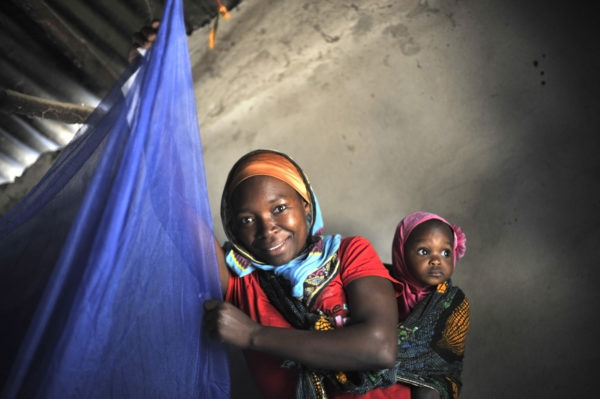World Malaria Day: Using Evidence of Economic Impacts to Inform Investments

Photo Credit: Riccardo Gangale, VectorWorks
The theme for World Malaria Day 2017 is “End Malaria for Good.” Achieving this goal has never been closer: according to the World Health Organization, in the past six years alone, there has been a 29 percent reduction in malaria mortality rates and a 21 percent drop in incidence rates worldwide.
Eliminating malaria will require greater investments in malaria prevention and control interventions, particularly by governments of malaria-endemic countries. Sound evidence of the broader economic impacts of these activities can ensure smart investments and help build the case required to mobilize resources for these investments.
USAID’s Health Finance and Governance project (HFG) works to equip stakeholders with contextualized evidence to inform critical decisions, such as how to maximize the impact of available funding, how to identify areas where additional resources are needed, and how the expansion of malaria control activities may affect the health system at the facility level. In Ghana, where malaria is the number one cause of morbidity and mortality of children under 5, HFG is supporting the National Health Insurance Authority (NHIA) to improve access to quality malaria services and medicines through the National Health Insurance Scheme (NHIS).
Effective coordination, communication, and collaboration among stakeholders is essential to ending malaria for good. With support from the President’s Malaria Initiative (PMI), HFG facilitates a Malaria Economic Research Community of Practice to ensure that research produced on the economic impacts of malaria control interventions continues to address the key questions that implementers, policymakers, and funders have.
Equipping Stakeholders with Evidence to Inform Critical Decisions
In countries seeking to eliminate malaria, like Senegal and Zambia, HFG has conducted research to support decision-making by key stakeholders, including National Malaria Control Program officials. Published studies based on innovative research conducted in Zambia suggest that investment in scale-up of malaria prevention, diagnosis and treatment programs could free up facility-level resources, such as blood supplies and financial resources, which can be used for other patients.
In Senegal, HFG researchers conducted a cost-effectiveness analysis of targeted malaria prevention and treatment intervention packages that vary by district and region. The analysis examines which packages or combinations of malaria control interventions have the highest value for money. Preliminary results indicated that Senegal has successfully distributed more resource-intensive packages to target high burden areas, although greater efficiency gains are still possible. The study provides Senegal and other malaria-endemic countries with methods and data to support sustainability planning and domestic resource mobilization for malaria elimination.
HFG’s support to Ghana’s NHIA has helped improve access to quality malaria services and medicines. Support includes:
- The scale-up of capitation payment for primary health care, including simple malaria, to ensure sustainability of the health insurance scheme, create incentives for health promotion and prevention, and improve fairness and equity;
- Better use of claims data and analytics to provide routine information on malaria service utilization and quality; and
- Contributions to the Presidential Commission on the Technical Review of the NHIS taking stock the Scheme’s achievements and where it can be strengthened to continue expanding access to affordable essential health services to more Ghanaians.
Selected Resources
- Community of Practice for Malaria Economic Research
- ASTMH Symposium: Session on Malaria Economics Research Priorities at the 65th Annual ASTMH Meeting
- Journal Article: Exploring the use of routinely available, retrospective data to study the association between malaria control scale-up and microeconomic outcomes in Zambia
- Brief: Ghana’s National Health Insurance Scheme: Ensuring Access to Malaria Services with Financial Protection
- Journal Article: Association Between Malaria Control and Paediatric Blood Transfusions in Rural Zambia: an Interrupted Time-Series Analysis
- Journal Article: Hospitalizations and Costs Incurred at the Facility Level after Scale-up of Malaria Control: Pre-Post Comparisons from Two Hospitals in Zambia
- Story: Malaria Interventions Save Money, Resources at the Facility-Level



